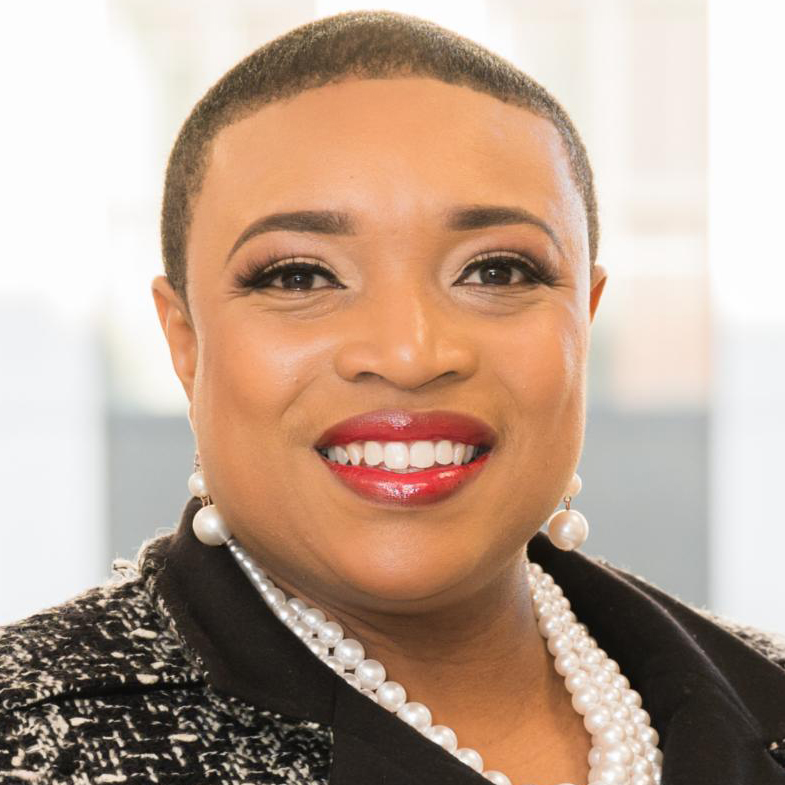Let me start by saying the Civil Rights Act of 1964, specifically Title I and Title VII, collectively federally mandates equity for Black Americans, as well as all ethnic groups that were discriminated against in voting and employment.
Equity, not rights. To this day, I still ask myself, can we really say equity, or is it a concept of equity that we still seek to reconcile as having access to true civil rights? Every natural-born citizen of the United States should have these rights because that is what the forefathers envisioned.
However, Black people were never included. Over the years, the Civil Rights Act has been an integral part of defining what it means to govern an equal and democratic society that some call the great experiment, which in many cases was never meant for the benefit of Black women. In the 21st century, Black women still rise and carry the burdens too proudly of this society to be a more perfect union at the expense of our ability to thrive in this country.
To give this some context, the Civil Rights Act of 1964 fulfilled its purpose to fight discrimination in the workplace and public spaces for African Americans and women of all other minority groups. While the act was comprehensive in addressing discrimination, it did not go nearly as far as it should as it pertains to voting rights, resulting in the Voting Rights Act of 1965. This act was more comprehensive and was inclusive of Black women. Keep in mind that Black men and women of other ethnicities benefited. Yet, Black Women - defined as women of African descent representing the entire diaspora were not beneficiaries. We worked just as hard during the civil rights movement beside our brothers and white sisters for the promise of inalienable rights, only to find ourselves still searching for our place.
As the National Council of Negro Women (NCNW) President Emerita, Dr. Dororthy Irene Height so eloquently wrote about the Civil Rights Act of 1964 in her memoir, Open Wide the Freedom Gates, “The initial jubilation was overtaken by disillusionment as the legislation failed to erase the fundamental causes of disenfranchisement of Black Americans. Black women continued to provide for themselves and their extended families many services that white women took for granted.” We still see this today. Black women are facing the “triple bind of racism, sexism, and poverty.”
We are still treated as a marginalized group. We are not provided with the opportunities for success through education and career preparation that would allow us to address issues like salary gaps and serving in senior-level executive leadership positions.
I stand on the truth that before our very eyes, we are watching those who were elected as the people’s representatives single-handedly desecrate democracy. Slowly but surely, the agency of a people is being stripped away. It appears that Black women make considerably less than their White male counterparts, which is blatant when it comes to equal pay and United States Supreme Court decisions that continue to marginalize and undermine the sanctity of opportunity in our most sacred institutions of higher learning.
All of these experiences for Black women remind us of the words of Ms. Fannie Lou Hammer, who said, “I am sick and tired of being sick and tired.”
When the US Supreme Court struck down decisions on student loan debt forgiveness and affirmative action practice at colleges and universities, it gave me validation that this land of the free and home of the brave is not about rights or equity, for that matter. Providing student loan debt relief would have been a stepping stone for Black women to make inroads toward financial freedom. While women hold two-thirds of the $1.3 Trillion in student loan debt, 57% of Black women report financial difficulties when repaying their student loans, the American Association of the University of Women tells us. Making a living wage is what we say collectively, but in 2021, Black women made only 67 cents for every white man’s dollar, according to the National Women’s Law Center. These examples are major reasons why this is a vicious cycle.
Often, equity in pay is not due to not being qualified but due to a lack of opportunities that create a pathway for economic justice that leaves no Black woman behind. At NCNW, we are working to combat this through the Bethune Height Leadership Pathway (BHLP) and the NCNW Financial Literacy Workshop Series that will set out to address economic injustices for Black women, producing collective positive outcomes through cross-sector collaboration and opening accessible doors for Black talent to thrive in professional working spaces. This work will also combat the affirmative action opposition, which we see today as white men declaring highly qualified Black women as affirmative action hires, while they are indeed discrimination hires.
Knowing all of this, as the first president and CEO of NCNW in our new infrastructure who is under the age of 50 in the 21st century, my righteous rage will be channeled as it was during the Civil Rights era to see that Black women are once again galvanizing the decision-making process. We will actively participate in leadership roles – including but not limited to community, government, and corporate sectors - and exercise our collective power through the vote. I will encourage Black women to never allow us to be silenced or deemed invisible again. Please understand that our next steps will be strategic, and the masses will witness the results of our actions.
You see, we, Black Women, understand that we have been called to save democracy as we have done time and time again. Black women, the group of people who were never meant to be included from the start, even after the passage of the Civil Rights Act of 1964, will ultimately serve as a catalyst to finish this race toward freedom, liberty, and justice for all.



